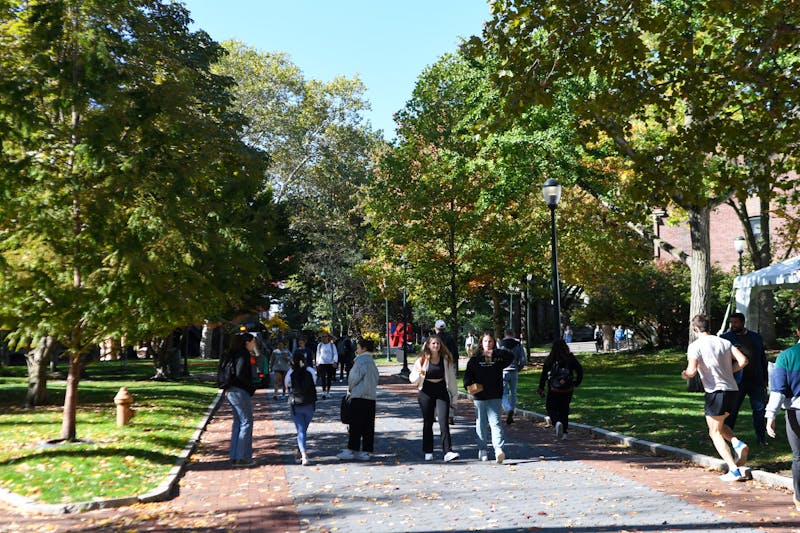
You and I are playing a subtle game. It congenitally dictates the friends you make, the partner you choose, the major you declare, and the job you apply for. This masked motivation decides both your behaviors and thoughts. It is the secret to understanding human existence. We call it the social status game, and the prize for mastering it is colossal.
I vividly recall my first club fair and the sharp difference between the interminable lines in front of some tables and deserted tables elsewhere. I was startled by upperclassmen, just one year older than I, aggressively promoting their organizations and desperately seeking attention. What fascinated me the most was that it worked. Why were some of us awkwardly forcing a connection to the more prestigious clubs and avoiding the lower-status ones?
I am not naive. My story is just one story, and those clubs gave me my closest friends. Yet I look back on how that experience marked the realization of a broader cultural dynamic: the unmeasurable and insatiable obsession with proving our self-worth through the status conferred on us by the connections we make and the clubs we join.
That is precisely what the game is about. Status is the inescapable human desire to be admired and respected. Rarely is it problematic. It is a primordial instinct, allowing us to belong, work productively, and succeed. Hierarchies are inevitable. However, the attainment and maintenance thereof is a concealed, perilous guide that causes undesired outcomes. It is an unspoken elephant in the brain. It is visibly there, yet we fail to acknowledge it.
What does it look like at Penn? Since prestige is granted based on perceived rather than actual competence, ours is a game of status cues, where our decisions are calculated moves to display prestige. Call it social capital, being sceney, or SABSing (seeing and being seen). The idea is the same: we are desperate for attention.
You schedule a Stommons coffee chat today, a Pattaya BYO tomorrow, a New York retreat this month, a Poconos trip the next, one fellowship in Asia this year, and study abroad in Europe the next. There’s SoulCycle on Friday and, occasionally, the Barnes Foundation on a Sunday afternoon. Your Instagram feed is extraordinary, and everyone thinks highly of you.
You tell yourself that having meals with friends matters to you and proceed to have twenty weekly social interactions. You have thousands of conversations and remember none. “You see your life as a possibility to experience rather than a project to fulfill. You hover above everything and land nowhere.” Sure, each day is fun, but what are they adding up to?
Okay, my writing is becoming too cynical. What can you do? Prestige, unlike dominance, is freely conferred, not coerced. It means we collectively decide what is worthy of prestige and actively grant it that status. We have the ability to change what qualifies as prestigious.
You should know that I believe your semester is successful even if you do not post ten slides on Instagram. That your love for concerts is genuine even if you do not take a video at Spring Fling. That you can call yourself social even if you have never been to a downtown party. That you have enough friends even if you are not in Greek life. That your job is respectable even if it does not reach hundreds of reactions on LinkedIn.
Talk about job descriptions instead of job titles. Learn how to detach yourself from the prestige cues that do not matter. I have close friends whom I only later discovered were Goldman Sachs and McKinsey interns. It may sound scandalous, but you can live without bringing it up.
Some of us dream of a Penn where we collectively agree that the doctor who cures cancer and the engineer who builds bridges are as equally valuable as the band of the song you cry to at night or the writer of the novel that helped you realize your aspiration to become a doctor or engineer in the first place. We just decided that one has a higher social status than the other.
I wish there was a way to let you know that you are worthy of existence, love, and belonging without needing to play this haphazard game. To incoming first years: prepare yourselves, because you are about to enter a four-year pie-eating contest where the only rule is to eat as much as possible, and first prize is even more pie. The quest for social status is addicting and has no finish line. The more you have it, the more you crave it.
After trying one pie, I felt satisfied and realized more would make me nauseous. Let’s stop this facade. Let social status do its intended job of encouraging us without bringing out the worst. Stop craving admiration and validity, and live a life of humility and purpose. Perhaps it is idealistic, but my experience is that those on the sidelines of the status game are flourishing, while those stuck playing are floundering without even realizing it.

FRANCESCO SALAMONE is a Wharton sophomore from Palermo, Italy. His email address is frasala@wharton.upenn.edu
The Daily Pennsylvanian is an independent, student-run newspaper. Please consider making a donation to support the coverage that shapes the University. Your generosity ensures a future of strong journalism at Penn.
Donate











